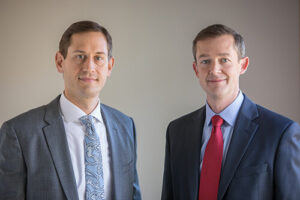 Forklifts are a part of countless companies’ daily operations because they can lift and move heavy, ungainly loads, saving time and reducing the need for manual labor. They are often used in warehouses, factories, distribution centers, and construction sites. When a forklift operator is professionally trained and others in the vicinity are aware of the potential dangers, incidents are less likely to occur.
Forklifts are a part of countless companies’ daily operations because they can lift and move heavy, ungainly loads, saving time and reducing the need for manual labor. They are often used in warehouses, factories, distribution centers, and construction sites. When a forklift operator is professionally trained and others in the vicinity are aware of the potential dangers, incidents are less likely to occur.
However, regardless of training or awareness, operating any kind of heavy machinery involves inherent risks and can lead to fatal injuries as well as serious nonfatal injuries.
What to Know About Forklift Accidents
According to the Bureau of Labor Statistics, from 2011 to 2017, 614 workers lost their lives in forklift-related incidents, and more than 7,000 experienced nonfatal injuries necessitating days away from work each year. The most common types of accidents include:
- Crushed by vehicle tipping over
- Caught between forklift and other structure
- Caught between forklift and other vehicle
- Run over
- Struck and killed by forklift load
Many deaths can be attributed to employers and workers being unaware of the risks of operating and working near this equipment, or failing to follow procedures established by the Occupational Safety and Health Administration (OSHA).
The requirements dictate that Austin employers need to develop and implement a training program based on the general principles of safe vehicle operation and the hazards created by the vehicle. The employer is responsible for evaluating the operator’s performance, and for offering a refresher when unsafe driving has been observed or workplace conditions change.
Forklift accidents fall into two categories: operator negligence and employer negligence.
Examples of operator negligence include:
- Speeding
- Careless driving
- Unbalanced load
- Failing to follow safety regulations
Examples of employer negligence include:
- Failure to provide adequate training
- Failure to maintain vehicle
- Lack of clear company rules and regulations
- Failure to anticipate potential hazards in the workplace (low clearance areas, too much noise, etc.)
There could be an overlap between these two categories. An employee might make an improperly fast turn because the employer has failed to offer adequate training or clearly communicate safety guidelines.
An accident may occur because inadequate equipment maintenance made it difficult to properly load. Lack of access to proper safety equipment may make it impossible for employees to abide by safety regulations, leading to an accident.
There may be many potential causes to examine and different parties involved, which is why contacting a lawyer for advice is a wise idea.
How FVF Law Firm – Injury & Wrongful Death Lawyers Can Help With Your Austin Forklift Accident Case
Injuries caused by forklift incidents are often severe enough that the victim requires emergency medical treatment and must miss at least several days of work. In severe cases, the victim may be unable to return to work at all or may be killed.
If employer negligence has played a role in your accident, there may be cause to pursue compensation for your medical bills and other losses and damages. A forklift accident lawyer can help you better understand your case and your rights, as well as offer support through a difficult time.
An expert Austin injury attorney will help you navigate whatever complex issues may play a role in your case. Factors that can complicate a case include:
- Workers’ comp or a forced arbitration clause. A workers’ comp policy is not required in Texas, but employers may opt in or include an arbitration clause in employee contracts. These policies seek to make it more difficult for victims to pursue action in the case of injury. Texas law does require employers to pay for accidents that occur while an employee was performing normal job duties, but not if an employee’s negligence of behavior contributed to the accident. Proving intent and liability in these cases can be difficult, and usually takes the expertise of a skilled accident lawyer.
- Temporary worker status. If the operator was a temporary worker employed by an agency but contracted by a host employer, establishing who was responsible for what can be complicated. The agency is responsible for training and evaluating operators, but the host employer is responsible for providing site-specific training.
- Third party negligence. A third party who was not on-site, such as the vehicle manufacturer, may ultimately be to blame.
An Austin forklift accident lawyer will communicate with all parties involved, obtain documents that reveal adherence to safety regulations or lack thereof, and determine the best path forward to obtain the compensation that you deserve.
Why Hire FVF Law to Manage Your Forklift Accident Case?
At FVF Law Firm – Injury & Wrongful Death Lawyers, our highest priority is ensuring that victims of forklifts and other workplace accidents know their options and can make informed decisions. We understand that it can be difficult for injured employees to challenge their employers, especially amid the emotional and physical distress following an accident.
That’s why we offer a free case evaluation with no pressure to commit to our firm: we care about your ability to take the best step forward, whether we will be walking alongside you or not. Contact us today so that we can assess your options and guide you toward fair compensation and financial recovery in your Austin forklift accident case.